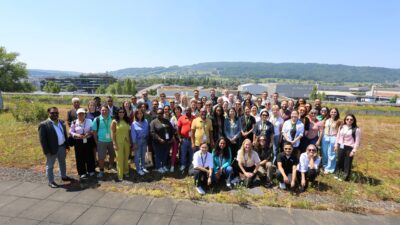NEW BILL INTRODUCED ON SKILLED IMMIGRATION
In the ongoing immigration debate, the Bay Area Council places special importance on the issues surrounding skilled immigration – H-1B visas, the entrepreneur visa, and green cards. This week Senator Orrin Hatch (R-UT) introduced his long-anticipated bill—the Immigration Act of 2018 (I-Squared)—which offers the most promising vehicle for addressing the concerns of many Bay Area companies. The issues covered Hatch’s bill are separate from those being debated about the fate of so-called Dreamers under the Deferred Action for Childhood Arrivals (DACA) program.
Hatch’s bill does several things: increases be base allocations of H-1Bs from 65,000 to 85,000; creates a market-based escalator that allows the supply of visas to meet demand; prioritizes petitions for holders of a U.S. master’s degree or higher, holders of foreign PhDs, and holders of U.S. STEM bachelor degrees; prohibits an employer from hiring an H-1B visa holder with the purpose and intent to replace a U.S. worker; provides work authorization for spouses of H-1B holders; increases H-1B worker job mobility; raises from $60,000 to $100,000 the salary level above which employers are exempt from certain recruitment and non-displacement requirements; eliminates the annual per-country limit for employment-based green cards; increases worker mobility for individuals on the path to a green card; creates a new conditional green card category to allow employers to sponsor university-educated foreign professionals through a separate path from H-1B; enables F-1 student visa holders to seek permanent residence status while a student or during Optional Practical Training (OPT); and increases fees for H-1B visas and employment-based green cards and directs those fees toward state-administered grants to promote STEM education and worker training.
The Council plans to work with Senator Hatch’s office, industry groups, and the Bay Area’s legislative delegation to advance the bill’s proposals, which return the H-1B program to its original intent by ensuring that recipients are high-skilled, precluding the replacement of U.S. workers by H-1B holders, and ensuring that employers have access to the skills and talent they need to be remain competitive.





